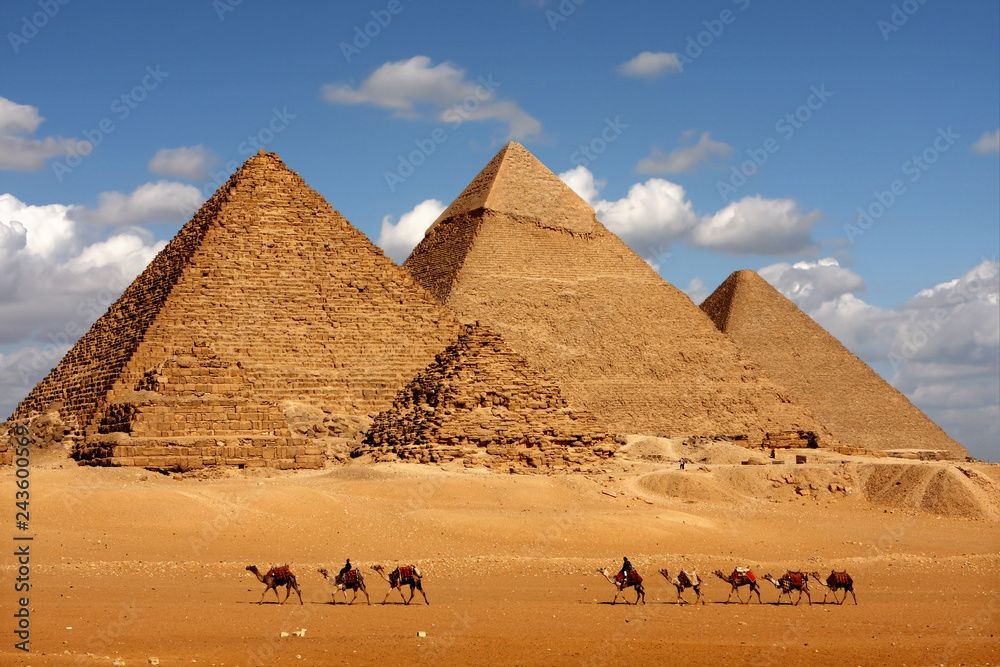Egypt's strategic power has evolved by walking a tightrope of considerations
In this article Ahmad Abdul-Rahman explains how Egypt's international policies reveal how its strategic power has strengthened over the years.
Foreign policy is the art of building and protecting interests and maintaining a balance of power. This balance means that each side realises that the major parties have the ability to deter the other. For the half century after World War II, the balance of power between the Western and Eastern camps was based on deterrence. World War II ended, and the US dropped atomic bombs on both Hiroshima and Nagasaki in Japan. The arms and space race remained a hallmark of the Cold War, until it ended after the Soviet invasion of Afghanistan.
Amid this imbalance, the world witnessed a vacuum in which the US took the lead. In the Arab region and the Middle East, the imbalance began to appear, notably with Iraq's invasion of Kuwait, followed by its liberation by an international coalition.
This imbalance continues. Since the end of the 1970s, there has been the Cold War, a war in Afghanistan, terrorism has appeared in the form of Al Qaeda and ISIS, and there is a weapon's race. When the Soviet Union left Afghanistan, it left a void. However, the US launched a war on Afghanistan and then invaded Iraq, thus beginning a new phase of imbalance, which reached its climax a decade ago.
As a consequence, ISIS was born, starting a new phase in which mercenaries play an important role in proxy wars. There is also an imbalance of forces inside Syria, Iraq, Yemen and Libya, the result being seen in form of unrest, conflicts, chaos and refugees.
These changes took place alongside a shift in world power, and an information and technological revolution that allowed propaganda wars to emerge. These wars are run by regional and international media and international communication sites. The volume of news, analyses and intelligence reports has created a state of information confusion.
The intertwining of regional concerns with domestic conflicts has made it increasingly difficult to judge what is regional and what is international - or to determine what is an alliance and what is coordination.
Hence, it is not possible to deal with a regional issue or challenge to national security in isolation from other issues. An example is Egypt, which is constantly walking a tightrope diplomatically and strategically in the Middle East. Egypt does not make a decision on one issue without considering the consequences on another. It makes regional and international decisions, while monitoring the positions of other countries and major blocs.
Egypt's regional and international policies that have been formed by President Abdel Fattah al-Sisi illustrate the effort that has gone into foreign policy tools and information devices, determining the role of the armed forces, and the country's overall strategy. Egypt had to confront terrorism, solve its economic and infrastructure problems, formulate development plans, develop its road networks, build cities, and determine agricultural policy. At the same time, Egypt has had to find its place in conflicts from Syria and Iraq to Libya, Yemen and Palestine where it has had to face manoeuvres and games; support its interests in the Nile; and protect its western borders with Libya. Egypt has also sought to enhance the interests of the Libyan people in the face of militias that fight by proxy, as well as the ambitions and interests of major powers, especially the US as well as those of regional countries.
There are questions about modernizing armaments, and where to build influence, especially because Egypt's policies exclude the threat of deterrence. The Middle East has always been seen as a hostile environment although Egypt was opening dialogue, building trust, advancing partnerships and reducing regional conflict. But it also had to deal with propaganda campaigns and hostile rumours.


Comments